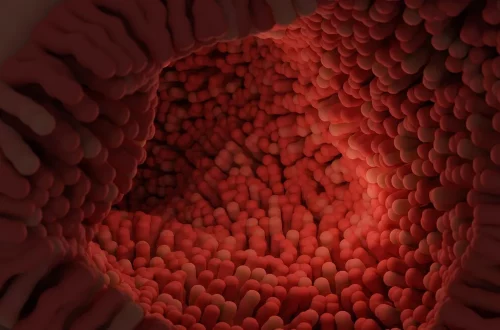
Understanding the Benefits of the Seven in One Puppy Shot
Vaccination is a crucial aspect of responsible pet ownership, particularly when it comes to puppies. The early weeks of a puppy’s life are a formative period, laying the groundwork for their health and well-being. This is the time when they are most vulnerable to infectious diseases, which can have serious consequences if not addressed promptly. Understanding the importance of vaccines can empower pet owners to make informed decisions about their furry companions’ health.
One of the most significant vaccinations for puppies is the seven in one shot, which offers protection against multiple diseases in a single dose. This vaccine is designed to shield puppies from a variety of serious and potentially fatal illnesses, making it a cornerstone of preventive care. By ensuring that their puppies receive this vaccination, pet owners can help mitigate the risk of these diseases, allowing their pets to grow into healthy, happy adults.
In addition to protecting individual puppies, widespread vaccination contributes to herd immunity, which is vital for the overall health of the canine population. By vaccinating puppies, pet owners not only safeguard their own pets but also contribute to the well-being of dogs in their community. This collective approach to vaccination is essential in managing outbreaks and ensuring that all dogs have the best chance at a healthy life.
The Importance of Vaccination in Puppies
Vaccination is an integral part of a puppy’s early life, serving as a shield against various infectious diseases. Puppies are born with some immunity passed from their mothers, but this protection diminishes quickly, leaving them vulnerable to illnesses. Vaccines are designed to stimulate the puppy’s immune system, allowing it to recognize and fight off specific pathogens.
The seven in one puppy shot is particularly significant because it protects against several diseases at once, including parvovirus, distemper, hepatitis, leptospirosis, and more. Each of these diseases can have severe health implications for puppies, ranging from gastrointestinal distress to respiratory complications. By vaccinating against them, pet owners can drastically reduce the risk of their puppies contracting these illnesses.
Moreover, vaccines work not just on an individual level but also on a community level. When a high percentage of a population is vaccinated, herd immunity is established. This means that even those who cannot be vaccinated for medical reasons are afforded some protection because the spread of the disease is minimized. This is especially important in densely populated areas where dogs interact frequently.
Regular vaccination schedules are vital for puppies, and the seven in one shot is typically administered at a young age as part of a series of vaccinations. It’s crucial for pet owners to adhere to these schedules to ensure their puppies are adequately protected. Skipping vaccinations can expose puppies to diseases that could have been prevented, leading to potentially life-threatening situations.
In conclusion, the importance of vaccination in puppies cannot be overstated. It not only protects the individual puppy but also contributes to the overall health of the dog population. By understanding the significance of vaccines, pet owners can take proactive steps towards ensuring their puppies lead long, healthy lives.
Components of the Seven in One Shot
The seven in one puppy shot is a combination vaccine that includes protection against various diseases. Understanding the components of this vaccine can give pet owners insight into its importance and effectiveness. The seven diseases typically covered by this shot are parvovirus, distemper, adenovirus (hepatitis), parainfluenza, leptospirosis, and sometimes additional components depending on the specific vaccine formulation.
Parvovirus is one of the most severe illnesses that dogs can contract, leading to severe gastrointestinal problems and often resulting in death if not treated promptly. Distemper is another serious viral illness that affects multiple body systems, including the respiratory and nervous systems, and is often fatal. Adenovirus can cause liver disease, while parainfluenza is a major contributor to kennel cough, a highly contagious respiratory condition.
Leptospirosis is a bacterial infection that can affect both animals and humans, making its vaccination particularly important. This disease can lead to kidney damage, liver failure, and in severe cases, death. The inclusion of leptospirosis in the seven in one shot reflects the growing recognition of its impact on canine health and the need for preventive measures.
The seven in one shot is administered in a series, with puppies typically receiving their first vaccination around six to eight weeks of age. Subsequent doses are given at intervals to ensure optimal immunity. This series is essential because puppies do not receive lifetime immunity from a single vaccination; their immune systems need time to build up defenses against these diseases.
By understanding the components of the seven in one shot, pet owners can appreciate its role in safeguarding their puppies’ health. This knowledge enables them to make informed decisions about their pets’ healthcare and emphasizes the importance of adhering to vaccination schedules for optimal protection.
Common Myths About Puppy Vaccination
Despite the overwhelming evidence supporting the importance of vaccinations, various myths and misconceptions persist regarding puppy vaccination, particularly concerning the seven in one shot. One common myth is that vaccines are unnecessary if the puppy appears healthy. However, this misconception can lead to dangerous outcomes. Just because a puppy seems healthy does not mean it is immune to the diseases that vaccines protect against. Many illnesses can be lurking silently, and without vaccination, a puppy remains at risk.
Another prevalent myth is that vaccines can cause serious side effects or illness in puppies. While it’s true that some puppies may experience mild reactions to vaccines, such as slight lethargy or a low-grade fever, serious side effects are extremely rare. The benefits of vaccination far outweigh the risks, especially when considering the severity of the diseases prevented.
Some pet owners also believe that natural immunity is sufficient and that vaccines are unnecessary. While it’s true that some dogs may develop natural immunity after exposure to certain pathogens, this approach is fraught with risk. Natural infections can lead to severe illness or even death, whereas vaccines provide a safe way to build immunity without exposing puppies to the diseases themselves.
Additionally, there is a misconception that vaccines are only necessary during the puppy stage. In reality, adult dogs also require regular booster shots to maintain immunity as they age. Vaccination is an ongoing process that continues throughout a dog’s life, and staying up-to-date with vaccines is essential for long-term health.
In conclusion, addressing these myths is crucial for fostering a better understanding of puppy vaccination. Educating pet owners can help them make informed decisions that prioritize the health and safety of their puppies, ensuring that they grow into healthy, thriving adult dogs.
The Role of Veterinary Guidance in Vaccination
Veterinary guidance plays a critical role in ensuring that puppies receive proper vaccination. Veterinarians are trained professionals who understand the complexities of animal health and can provide valuable insights into vaccination schedules and protocols. They can help pet owners navigate the often overwhelming amount of information available regarding vaccines and their importance.
During a puppy’s initial veterinary visit, the veterinarian will assess the puppy’s overall health and recommend an appropriate vaccination schedule based on factors such as age, breed, and lifestyle. This personalized approach is essential, as each puppy may have different needs and risks. For example, puppies that will be socialized in public places or around other dogs may require a different vaccination strategy than those that will primarily stay indoors.
Veterinarians can also address any concerns pet owners may have about vaccines. They can provide evidence-based information about the safety and efficacy of vaccinations, helping to dispel myths and misconceptions. This open communication fosters trust between pet owners and veterinarians, allowing for collaborative decision-making regarding the puppy’s health.
Moreover, regular veterinary check-ups provide opportunities for ongoing education about vaccination and other aspects of pet care. Veterinarians can inform pet owners about the latest developments in veterinary medicine, including new vaccines or changes in vaccination protocols. This ensures that pet owners remain informed and can make the best choices for their puppies.
In summary, veterinary guidance is invaluable in the vaccination process for puppies. Veterinarians provide personalized recommendations, address concerns, and educate pet owners about the importance of vaccinations. By working closely with a veterinarian, pet owners can ensure their puppies receive the best possible care, leading to healthier lives.
As a final note, please remember that this article is for informational purposes only and is not a substitute for professional medical advice. Always consult your veterinarian for any concerns regarding your pet’s health and vaccination.




